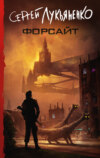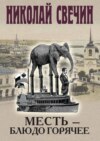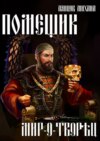Читать книгу: «Flagg's The Far West, 1836-1837, part 1», страница 19
XXXI
"No leave take I, for I will ride
As far as land will let me."
"The long sunny lapse of a summer's daylight."
"What fool is this!"
As You Like It.
Among that novel variety of feature which the perspicacity of European tourists in America has enabled them to detect of Cis-atlantic character, two traits seem ever to stand forth in striking relief, and are dwelt upon with very evident satisfaction: I allude to Avarice and Curiosity. Upon the former of these characteristics it is not my purpose to comment; though one can hardly have been a traveller, in any acceptation of the term, or in almost any section of our land, without having arrived at a pretty decided opinion upon the subject. Curiosity, however, it will not, I am persuaded, be denied, does constitute a feature, and no inconsiderable one, in our national character; nor would it, perhaps, prove a difficult task to lay the finger upon those precise circumstances in our origin and history as a people which have tended to superinduce a trait of this kind – a trait so disgusting in its ultra development; and yet, in its ultimate nature, so indispensably the mainspring of everything efficient in mind. "Low vice," as the author of Childe Harold has been pleased to stigmatize it; yet upon this single propellant may, in retrospect, be predicated the cause of more that contributes to man's happiness than perhaps upon any other. Frailty of a little mind, as it may be, and is often deemed; yet not the less true is it that the omnipotent workings of this passion have ever been, and must, until the nature of the human mind is radically changed, continue to remain, at once the necessary concomitant and the essential element of a vigorous understanding. If it be, then, indeed true, as writers and critics beyond the waters would fain have us believe, that American national character is thus compounded, so far from blushing at the discovery, we would hail it as a leading cause of our unparalleled advancement as a people in the time past, and as an unerring omen of progression in future.
My pen has been insensibly betrayed into these remarks in view of a series of incidents which, during my few months rambling, have from time to time transpired; and which, while they illustrate forcibly to my mind the position I have assumed, have also demonstrated conclusively the minor consideration, that the passion, in all its phenomena, is by no means, as some would have us believe, restricted to any one portion of our land; that it is, in verity, a characteristic of the entire Anglo-American race! Thus much for sage forensic upon "that low vice, curiosity."
My last number left me luxuriating, with all the gusto of an amateur prairie-wolf fresh from his starving lair, upon the fat and honey of Illinois. During these blessed moments of trencher devotion, several inmates of the little cabin whose hospitality I was enjoying, who had been labouring in the field, successively made their appearance; and to each individual in turn was the traveller handed over, like a bale of suspected contraband merchandise, for supervision. The interrogatories of each were quite the same, embracing name and nativity, occupation, location, and destination, administered with all the formal exactitude of a county-court lawyer. With the inquiries of none, however, was I more amused than with those of a little corpulent old fellow ycleped "Uncle Bill," with a proboscis of exceeding rubicundity, and eyes red as a weasel's, to say nothing of a voice melodious in note as an asthmatic clarionet. The curiosity of the Northern Yankee is, in all conscience, unconscionable enough when aroused; but, for the genuine quintessence of inquisitiveness, commend your enemy, if you have one, to an army of starving gallinippers, or to a backwoods' family of the Far West, who see a traveller twice a year, and don't take the newspaper! Now mark me, reader! I mention this not as a fault of the worthy "Suckers:"206 it is rather a misfortune; or, if otherwise, it surely "leans to virtue's side." A peculiarity, nevertheless, it certainly is; and a striking one to the stranger. Inquiries are constantly made with most unblushing effrontery, which, under ordinary circumstances, would be deemed but a single remove from insult, but at which, under those to which I refer, a man of sense would not for a moment take exception. It is true, as some one somewhere has said, that a degree of inquisitiveness which in the more crowded walks of life would be called impertinent, is perfectly allowable in the wilderness; and nothing is more conceivable than desire for its gratification. As to the people of Illinois, gathered as they are from every "kindred, and nation, and tribe, and language under heaven," there are traits of character among them which one could wish universally possessed. Kind, hospitable, open-hearted, and confiding have I ever found them, whether in the lonely log cabin of the prairie or in the overflowing settlement; and some noble spirits I have met whose presence would honour any community or people.
After my humble but delicious meal was concluded, mine host, a tall, well-proportioned, sinewy young fellow, taking down his rifle from the beckets in which it was reposing over the rude mantel, very civilly requested me to accompany him on a hunting ramble of a few hours in the vicinity for deer. Having but a short evening ride before me, I readily consented; and, leaving the cabin, we strolled leisurely through the shady woods, along the banks of the creek I have mentioned, for several miles; but, though indications of deer were abundant, without success. We were again returning to the hut, which was now in sight on the prairie's edge, when, in the middle of a remark upon the propriety of "disposing of a part of his extensive farm," the rifle of my companion was suddenly brought to his eye; a sharp crack, and a beautiful doe, which the moment before was bounding over the nodding wild-weeds like the summer wind, lay gasping at our feet.
So agreeable did I find my youthful hunter, that I was wellnigh complying with his request to "tarry with him yet a few days," and try my own hand and eye, all unskilled though they be, in gentle venerie; or, at the least, to taste a steak from the fine fat doe. Sed fugit, interea fugit, irreparabile tempus; and when the shades of evening were beginning to gather over the landscape, I had passed over a prairie some eight miles in breadth; and, chilled and uncomfortable from the drenching of a heavy shower, was entering the village of Shelbyville through the trees.207
This is a pleasant little town enough, situated on the west bank of the Kaskaskia River, in a high and heavily-timbered tract. It is the seat of justice for the county from which it takes its name, which circumstance is fearfully portended by a ragged, bleak-looking structure called a courthouse. Its shattered windows, and flapping doors, and weather-stained bricks, when associated with the object to which it is appropriated, perched up as it is in the centre of the village, reminds one of a cornfield scarecrow, performing its duty by looking as hideous as possible. In terrorem, in sooth. Dame Justice seems indeed to have met with most shameful treatment all over the West, through her legitimate representative the courthouse. The most interesting object in the vicinity of Shelbyville is a huge sulphur-spring, which I did not tarry long enough to visit.
"Will you be pleased, sir, to register your name?" was the modest request of mine host, as, having settled the bill, with foot in stirrup, I was about mounting my steed at the door of the little hostlerie of Shelbyville the morning after my arrival. Tortured by the pangs of a curiosity which it was quite evident must now or never be gratified, he had pursued his guest beyond the threshold with this dernier resort to elicit a name and residence. "Register my name, sir!" was the reply. "And pray, let me ask, where do you intend that desirable operation to be performed?" The discomfited publican, with an expression of ludicrous dismay, hastily retreating to the bar-room, soon reappeared gallanting a mysterious-looking little blue-book, with "Register" in ominous characters portrayed upon the back thereof. A name was accordingly soon despatched with a pencil, beneath about a dozen others, which the honest man had probably managed to save in as many years; and, applying the spur, the last glance of the traveller caught the eager features of his host poring over this new accession to his treasure.
The early air of morning was intensely chilling as I left the village and pursued my solitary way through the old woods; but, as the sun went up the heavens, and the path emerged upon the open prairie, the transition was astonishing. The effect of emerging from the dusky shades of a thick wood upon a prairie on a summer day is delightful and peculiar. I have often remarked it. It impresses one like passing from the damp, gloomy closeness of a cavern into the genial sunshine of a flower-garden. For the first time during my tour in Illinois was my horse now severely troubled by that terrible insect, so notorious all over the West, the large green-bottle prairie-fly, called the "green-head." My attention was first attracted to it by observing several gouts of fresh blood upon the rein; and, glancing at my horse's neck, my surprise was great at beholding an orifice quite as large as that produced by the fleam from which the dark fluid was freely streaming. The instant one of these fearful insects plants itself upon a horse's body, the rider is made aware of the circumstance by a peculiar restlessness of the animal in every limb, which soon becomes a perfect agony, while the sweat flows forth at every pore. The last year208 was a remarkable one for countless swarms of these flies; many animals were killed by them; and at one season it was even dangerous to venture across the broader prairies except before sunrise or after nightfall. In the early settlement of the county, these insects were so troublesome as in a great measure to retard the cultivation of the prairies; but, within a few years, a yellow insect larger than the "green-head" has made its appearance wherever the latter was found, and, from its sweeping destruction of the annoying fly, has been called the "horse-guard." These form burrows by penetrating the earth to some depth, and there depositing the slaughtered "green-heads." It is stated that animals become so well aware of the relief afforded by these insects and of their presence, that the traveller recognises their arrival at once by the quiet tranquillity which succeeds the former agitation. Ploughing upon the prairies was formerly much delayed by these insects, and heavy netting was requisite for the protection of the oxen.
At an inconsiderable settlement called Cold Spring, after a ride of a dozen miles, I drew up my horse for refreshment.209 My host, a venerable old gentleman, with brows silvered over by the frosts of sixty winters, from some circumstance unaccountable, presumed his guest a political circuit-rider, and arranged his remarks accordingly. The old man's politics were, however, not a little musty. Henry Clay was spoken of rather as a young aspirant for distinction, just stepping upon the arena of public life, than as the aged statesman about resigning "the seals of office," and, hoary with honour, withdrawing from the world. Nathless, much pleased was I with my host. He was a native of Connecticut, and twenty years had seen him a resident in "the Valley."
Resuming my route, the path conducted through a high wood, and for the first time since my departure from New-England was my ear charmed by the sweet, melancholy note of the robin, beautiful songster of my own native North. A wanderer can hardly describe his emotions on an occurrence like this. The ornithology of the West, so far as a limited acquaintance will warrant assertion, embraces many of the most magnificent of the feathered creation. Here is found the jay, in gold and azure, most splendid bird of the forest; here the woodpecker, with flaming crest and snowy capote; the redbird; the cardinal grosbeak, with his mellow whistle, gorgeous in crimson dies; the bluebird, delicate as an iris; the mockbird, unrivalled chorister of our land; the thrush; the wishton-wish; the plaintive whippoorwill; and last, yet not the least, the turtle-dove, with her flutelike moaning. How often, on my solitary path, when all was still through the grove, and heaven's own breathings for a season seemed hushed, have I reined up my horse, and, with feelings not to be described, listened to the redundant pathos of that beautiful woodnote swelling on the air! Paley has somewhere210 told us, that by nothing has he been so touchingly reminded of the benevolence of Deity as by the quiet happiness of the infant on its mother's breast. To myself there is naught in all Nature's beautiful circle which speaks a richer eloquence of praise to the goodness of our God than the gushing joyousness of the forest-bird!
All day I continued my journey over hill and dale, creek and ravine, woodland and prairie, until, near sunset, I reined up my weary animal to rest a while beneath the shade of a broad-boughed oak by the wayside, of whose refreshing hospitality an emigrant, with wagon and family, had already availed himself. The leader of the caravan, rather a young man, was reclining upon the bank, and, according to his own account, none the better for an extra dram. From a few remarks which were elicited from him, I soon discovered – what I had suspected, but which he at first had seemed doggedly intent upon concealing – that he belonged to that singular sect to which I have before alluded, styling themselves Mormonites, and that he was even then on his way to Mount Zion, Jackson county, Mo.! By contriving to throw into my observations a few of those tenets of the sect which, during my wanderings, I had gathered up, the worthy Mormonite was soon persuaded – pardon my insincerity, reader – that he had stumbled upon a veritable brother; and, without reserve or mental reservation, laid open to my cognizance, as we journeyed along, "the reasons of the faith that was in him," and the ultimate, proximate, and intermediate designs of the party. And such a chaotic fanfaronade of nonsense, absurdity, nay, madness, was an idle curiosity never before punished with. The most which could be gathered of any possible "account" from this confused, disconnected mass of rubbish, was the following: That Joe Smith, or Joe Smith's father, or the devil, or some other great personage, had somewhere dug up the golden plates upon which were graven the "Book of Mormon: " that this all-mysterious and much-to-be-admired book embraced the chronicles of the lost kings of Israel: that it derived its cognomen from one Mormon, its principal hero, son of Lot's daughter, king of the Moabites: that Christ was crucified on the spot where Adam was interred: that the descendants of Cain were all now under the curse, and no one could possibly designate who they were: that the Saviour was about to descend in Jackson county, Missouri; the millennium was dawning, and that all who were not baptized by Joe Smith or his compeers, and forthwith repaired to Mount Zion, Missouri, aforesaid, would assuredly be cut off, and that without remedy. These may, perhaps, serve as a specimen of a host of wild absurdities which fell from the lips of my Mormonite; but, the instant argument upon any point was pressed, away was he a thousand miles into the fields of mysticism; or he laid an immediate embargo on farther proceedings by a barefaced petitio principii on the faith of the golden plates; or by asserting that the stranger knew more upon the matter than he! At length the stranger, coming to the conclusion that he could at least boast as much of Mormonism, he spurred up, and left the man still jogging onward, to Mount Zion. And yet, reader, with all his nonsense, my Mormonite was by no means an ignorant fanatic. He was a native of Virginia, and for fifteen years had been a pedagogue west of the Blue Ridge, from which edifying profession he had at length been enticed by the eloquence of sundry preachers who had held forth in his schoolhouse. Thereupon taking to himself a brace of wives and two or three braces of children by way of stock in trade for the community at Mount Zion, and having likewise taken to himself a one-horse wagon, into which were bestowed the moveables, not forgetting a certain big-bellied stone bottle which hung ominously dangling in the rear; I say, having done this, and having, moreover, pressed into service a certain raw-boned, unhappy-looking horse, and a certain fat, happy-looking cow, which was driven along beside the wagon, away started he all agog for the promised land.
The grand tabernacle of these fanatics is said to be at a place they call Kirtland, upon the shores of Lake Erie, some twenty miles from Cleveland, and numbers no less than four thousand persons. Their leader is Joe Smith, and associated with him is a certain shrewd genius named Sydney Rigdom, a quondam preacher of the doctrine of Campbell.211 Under the control of these worthies as president and cashier, a banking-house was established, which issued about $150,000, and then deceased. The private residences are small, but the temple is said to be an elegant structure of stone, three stories in height, and nearly square in form. Each of its principal apartments is calculated to contain twelve hundred persons, and has six pulpits arranged gradatim, three at each extremity of the "Aaronic priesthood," and in the same manner with the "priesthood of Melchisedek." The slips are so constructed as to permit the audience to face either pulpit at pleasure. In the highest seat of the "Aaronic priesthood" sits the venerable sire of the prophet, and below sit his hopeful Joe and Joe's prime minister, Sydney Rigdom. The attic of the temple is occupied for schoolrooms, five in number, where a large number of students are taught the various branches of the English, Latin, Greek, and Hebrew languages. The estimated cost of this building is $60,000.212 Smith is represented as a quiet, placid-seeming knave, with passionless features, perfectly composed in the midst of his heterogeneous multitude of dupes. Rigdom, on the contrary, has a face full of fire, a fine tenour voice, and a mild and persuasive eloquence of speech. Many of their followers are said to be excellent men. The circumstances of the origin, rise, and progress of this singular sect have been given to the public by the pen of an eccentric but polished writer, and there is nothing material to add.
The close of the day found me once more upon the banks of the Kaskaskia; and early on the succeeding morning, fording the stream, I pursued my route along the great national road towards Terre Haute. This road is projected eighty feet in breadth, with a central carriage-path of thirty feet, elevated above all standing water, and in no instance to exceed three degrees from a perfect level. The work has been commenced along the whole line, and is under various stages of advancement; for most of the way it is perfectly direct. The bridges are to be of limestone, and of massive structure, the base of the abutments being equal in depth to one third their altitude. The work was for a while suspended, for the purpose of investigating former operations, and subsequently through failure of an appropriation from Congress; but a grant has since been voted sufficient to complete the undertaking so far as it is now projected.213 West of Vandalia the route is not yet located, though repeated surveys with reference to this object have been made. St. Louis, Alton, Beardstown, and divers other places upon the Mississippi and its branches present claims to become the favoured point of its destination. Upon this road I journeyed some miles; and, even in its present unfinished condition, it gives evidence of its enormous character. Compare this grand national work with the crumbling relics of the mound-builders scattered over the land, and remark the contrast: yet how, think you, reader, would an hundred thousand men regard an undertaking like this?
My route at length, to my regret, struck off at right angles from the road, and for many a mile wound away among woods and creeks. As I rode along through the country I was somewhat surprised at meeting people from various quarters, who seemed to be gathering to some rendezvous, all armed with rifles, and with the paraphernalia of hunting suspended from their shoulders. At length, near noon, I passed a log-cabin, around which were assembled about a hundred men: and, upon inquiry, learned that they had come together for the purpose of "shooting a beeve,"214 as the marksmen have it. The regulations I found to be chiefly these: A bull's-eye, with a centre nail, stands at a distance variously of from forty to seventy yards; and those five who, at the close of the contest, have most frequently driven the nail, are entitled to a fat ox divided into five portions. Many of the marksmen in the vicinity, I was informed, could drive the nail twice out of every three trials. Reluctantly I was forced to decline a civil invitation to join the party, and to leave before the sport commenced; but, jogging leisurely along through a beautiful region of prairie and woodland interspersed, I reached near nightfall the village of Salem.215 This place, with its dark, weather-beaten edifices, forcibly recalled to my mind one of those gloomy little seaports sprinkled along the iron-bound coast of New-England, over some of which the ocean-storm has roared and the ocean-eagle shrieked for more than two centuries. The town is situated on the eastern border of the Grand Prairie, upon the stage-route from St. Louis to Vincennes; and, as approached from one quarter, is completely concealed by a bold promontory of timber springing into the plain. It is a quiet, innocent, gossiping little place as ever was, no doubt; never did any harm in all its life, and probably never will do any. This sage conclusion is predicated upon certain items gathered at the village singing-school; at which, ever-notable place, the traveller, agreeable to invitation attended, and carolled away most vehemently with about a dozen others of either sex, under the cognizance of a certain worthy personage styled the Major, whose vocation seemed to be to wander over these parts for the purpose of "building up" the good people in psalmody. To say that I was not more surprised than delighted with the fruits of the honest songster's efforts in Salem, and that I was, moreover, marvellously edified by the brisk airs of the "Missouri Harmony," from whose cheerful pages operations were performed, surely need not be done; therefore, prithee reader, question me not.
Mt. Vernon, Ill.
Alexander Campbell (1788-1866), educated at the University of Glasgow, came to the United States (1809) and joined the Presbyterian church. Refusing to recognize any teachings save those of the Bible, as he understood them, he and his father, Thomas Campbell, were dismissed (1812) and with a few followers formed a temporary union with the Baptist church. Disfellowshiped in 1827, they organized the Disciples of Christ, popularly known as the Campbellites. The son published the Christian Baptist, a monthly magazine, its name being changed (1830) to the Millennial Harbinger. He held several public offices in the state of Virginia, and in 1840 founded Bethany (Virginia) College. – Ed.

























